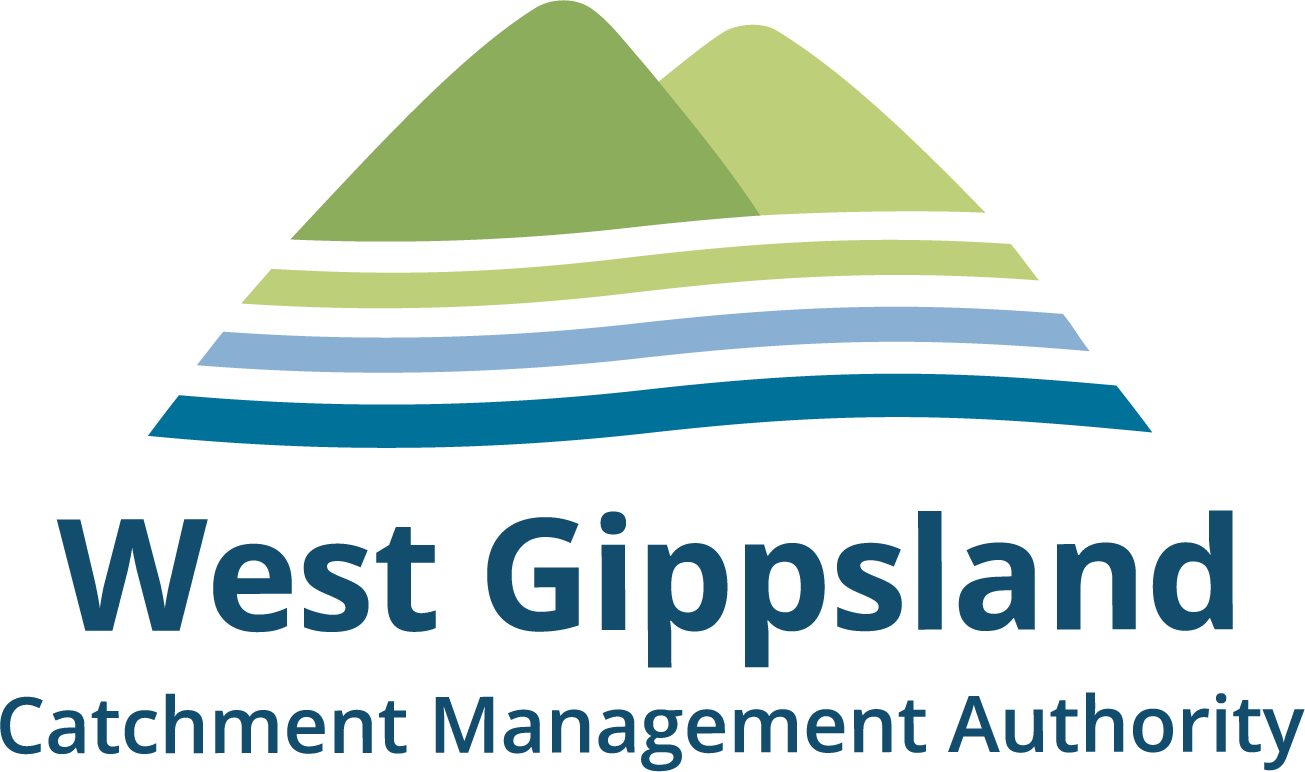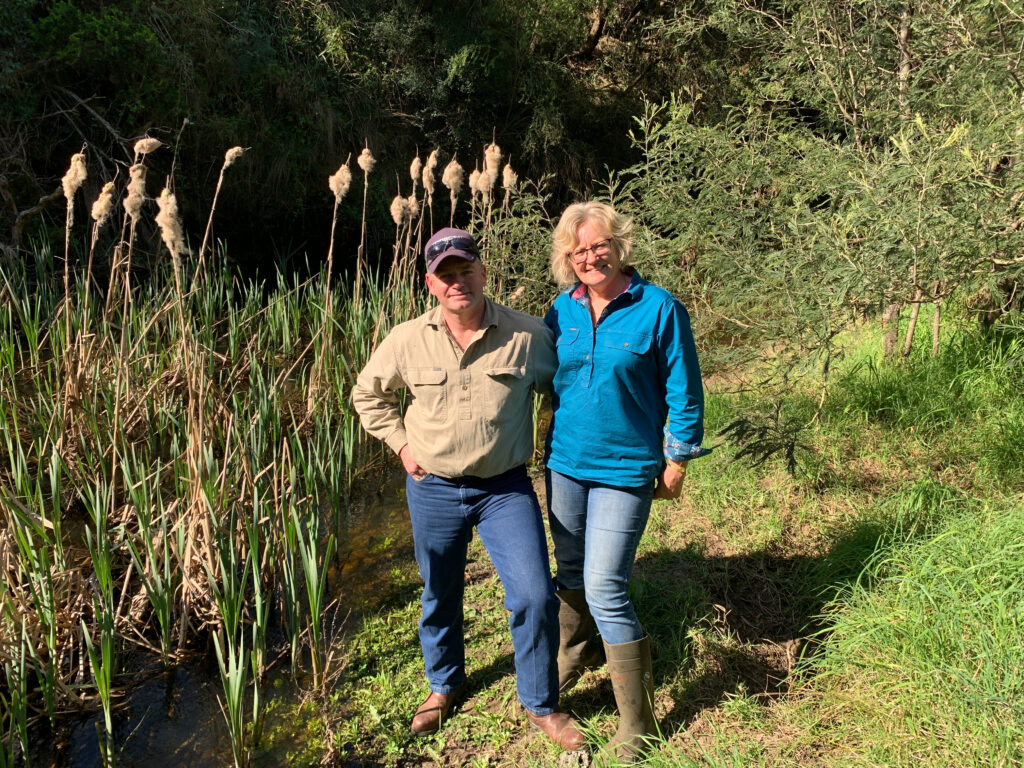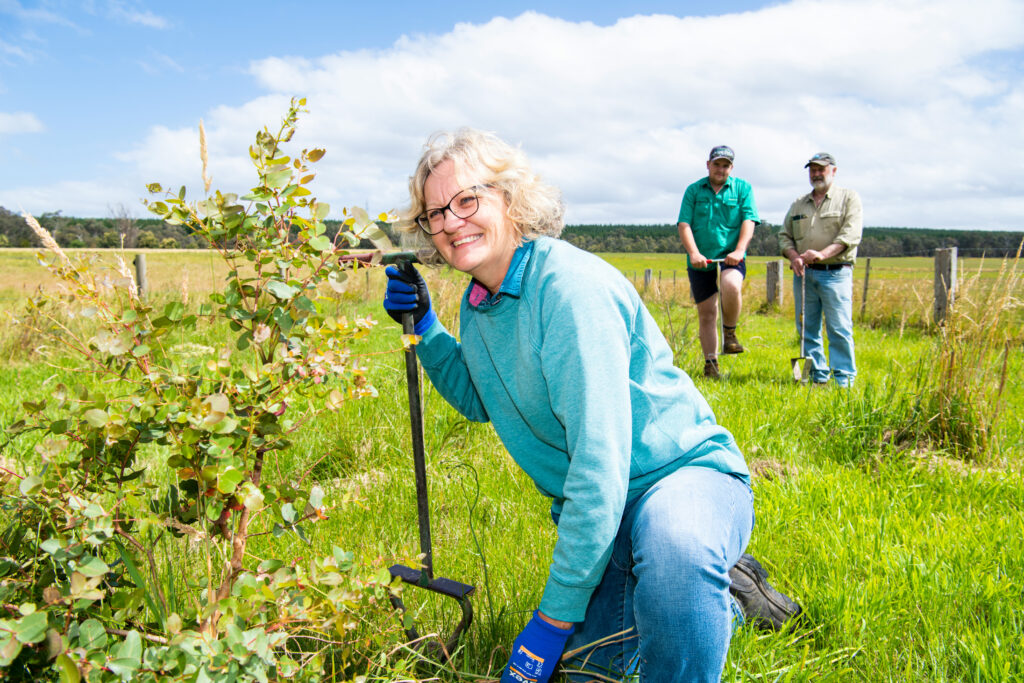Farmers adapting to a changing climate – Preparing for the next drought
The very real effects of climate change are a challenge for everyone. Merriman Creek Landcare Group is partnering with West Gippsland Catchment Management Authority and Food and Fibre Gippsland to face this challenge head on with a series of workshops to support farmers to prepare for and manage dry conditions.
“Two workshops have been funded through the Victorian Landcare Grants and West Gippsland CMA and Food and Fibre Gippsland,” said Sam Shannon West Gippsland Drought Hub Adoption Officer, who is providing in-kind support and funding to support the project.
David Hardwick delivered the first workshop to build a deeper understanding of soil health and how soil management can increase drought resilience.
“Improving the condition of soil can significantly improve drought resilience for any farming business, but especially those in areas with more fragile, shallow topsoils that are prone to wind erosion. This is why we were particularly keen to support soil health workshops in that Giffard/Stradbroke area,” said Sam.
Increasing soil organic matter will increase the water holding capacity of soil, enabling pasture to persist for longer and recover faster. Soil organic matter can also improve water infiltration rate, which can help to utilise those small rainfall events that may occur during a drought, helping with pasture persistence during dry times.
Building soil organic matter can be achieved in a number of ways, such as adding soil organic amendments, sowing multi-species pastures, incorporating plant material into the soil after harvesting crops or when renovating pastures, and through grazing management that allows residual plant material to decay back into the soil.
In the second workshop, Fiona Baker from Agriculture Victoria provided an engaging session designed to help farmers to develop a plan to manage dry conditions.
The plan focuses on setting ‘triggers’ as drought develops to activate measures to mitigate impacts, such as de-stocking livestock, retaining ground cover by using containment paddocks to reduce erosion and nutrient loss to waterways, and setting water and feed budgets for maintaining livestock.
“This preparedness and planning of such actions will also help to alleviate the mental health stresses faced by farmers and recently observed during the last drought. The development and use of such a plan will protect the landscape and guide farmers with their business decisions and would also be effective in a fire recovery situation,” said Sam.
The workshops respond to a very real need in the Giffard/Stradbroke area. “Our district suffered a horrendous three-year drought from 2017-2019,” said Melissa Ainsworth, Secretary of Merriman Creek Landcare Group.
“In response to seeing the effects that drought had on our landscape, farming families and their farm businesses, we applied for a Victorian Landcare Grant to facilitate these workshops to prepare for the next drought,” said Melissa whose family has been members of the group since 2008.
“These workshops are important to keep communities informed, resilient and supported with the key messages of the importance of soil health and need to change our farm management methods, according to the weather,” said Melissa.
“We learned about soil being a community of living organisms and the symbiotic relationship soil microbes have with plants. Soil is the foundation that determines food quality, land and water resources, not to mention social and environmental welfare. In an El Nino situation, we now have a Drought Management Plan to help conserve our precious soils to better sustain droughts and to minimise their impact.”
“Over the past 20 years the Giffard Plain area has endured three significant droughts the most recent, and by far the worst, in terms of severity and duration. With drought not being uncommon in Australia, and particularly in our local area, farmers need all the tools in their toolboxes to adapt to the changing climate,” Melissa concluded.
A third workshop is planned for late 2024.
These workshops are funded through the Victorian Landcare Grants that are administered through West Gippsland CMA and support Biodiversity 2037, the Victorian Government’s long-term plan to protect Victoria’s environment.







